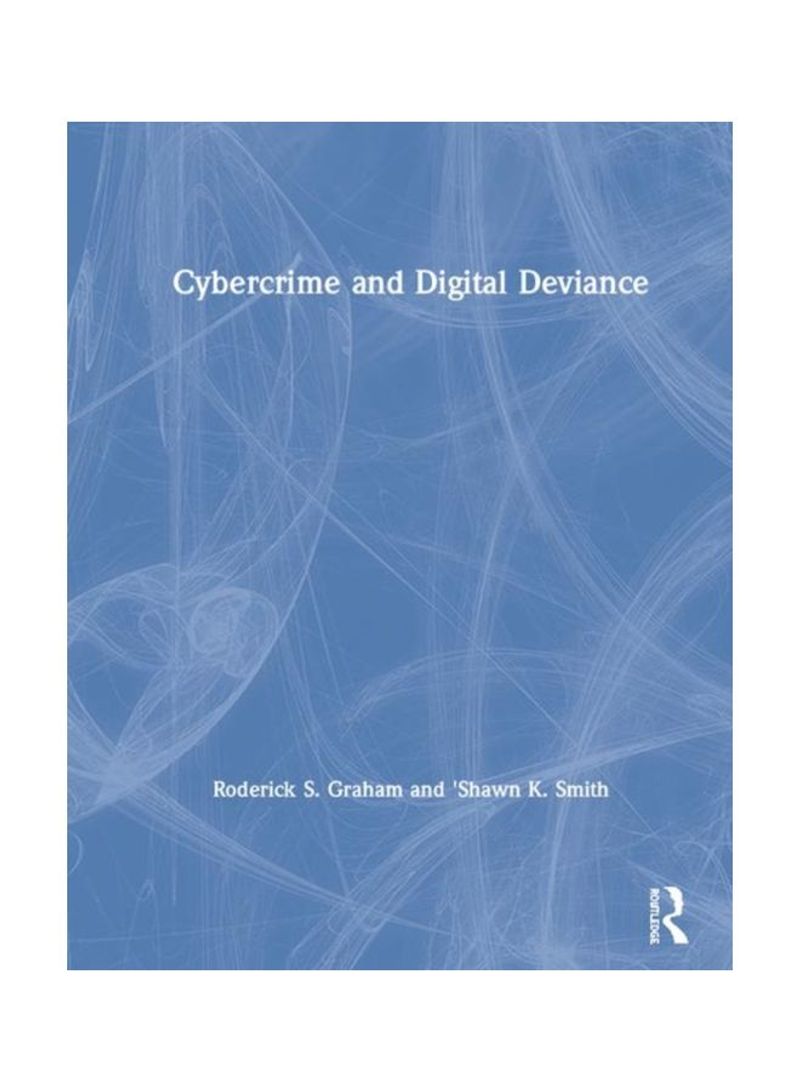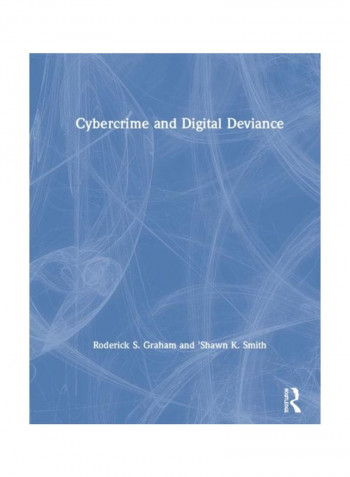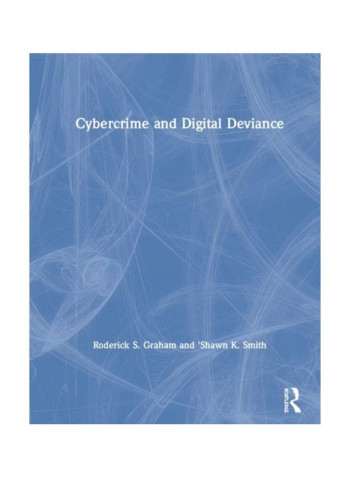Cybercrime And Digital Deviance Hardcover
Recommend
Sort by
Rating
Date
Specifications
Grade
New
Author 1
Roderick S. Graham
Book Description
Cybercrime and Digital Deviance is a work that combines insights from sociology, criminology, and computer science to explore cybercrimes such as hacking and romance scams, along with forms of cyberdeviance such as addiction, trolling, and flaming. Other issues are explored including cybercrime investigations, organized cybercrime, the use of algorithms in policing, cybervictimization, and the theories used to explain cybercrime.
ISBN-13
9780815376309
Language
English
Publisher
Taylor & Francis Inc
Publication Date
23-Sep-19
Number of Pages
222
About the Author
Roderick S. Graham is an Assistant Professor of Sociology in the Sociology and Criminal Justice Department at Old Dominion University. He teaches courses on cybercrime, research methods, and racial inequality. He is the coordinator of the interdisciplinary Cybercrime bachelor's degree at Old Dominion University. He has published research in Deviant Behavior, First Monday, and Youth and Society. 'Shawn K. Smith is a Criminologist and Assistant Professor of Criminal Justice in the Department of Criminal Justice at Radford University. His areas of research and pedagogy include social networking theories in crime, public policy in criminal justice, and advanced research procedures. He has published research in Sociological Focus, Journal of Race and Ethnicity, Criminal Justice Studies: A Critical Journal of Crime, Law, and Society, and African Journal of Criminology and Justice Studies.
Author 2
Shawn K. Smith
Editorial Review
This is the most thorough criminological text to date on cyberdeviance, cybercrime, and cyberpolicing. It looks beyond the boundaries of computer science and criminology to help us understand a new world of deception, trespass, and harm. Marcus Felson, Professor of Criminology, Texas State University Graham and Smith have produced a text exploring cybercrime and cyberdeviance through a multidisciplinary social science framework. Bringing together multiple disciplinary frameworks - including criminology, sociology, computer sciences, engineering, and data analytics - Cybercrime and Cyberdeviance provides rich insights into the full range of cyber harms. Connecting societal, technological, political, and legal shifts, Graham and Smith's insights are easy to understand, informative, and up-to-date. One of the many strengths of the work is its ability to discuss complicated topics typically addressed in computer science and engineering in a way that social science students can appreciate and understand. Taking these technological concepts and addressing them through a sociological and humanistic lens offers readers a perspective that will better prepare them for the future of cybercrime. Given the increased prevalence of cybercrime and cyberdeviance, the need for more professionals in this area is clear. While the increase in cybercrime is a great concern for all of us, it is comforting that Roderick Graham and 'Shawn Smith have delivered a text that will give future cybercrime professionals the awareness they need to better respond to these offenses. Brian K. Payne, Vice Provost for Academic Affairs, Old Dominion University With new technological and industrial changes accompanying the fourth industrial revolution, cybercrime education should consistently adapt to stay up-to-date on the ever-increasing types of cybercrime developed by cybercriminals. Cybercrime and Digital Deviance offers interesting interdisciplinary insights within a broad range of contemporary cybercrime topics to deliver an in-depth understanding of the nature of cybercrime in the criminal justice field. More importantly, this book aims to bridge criminological perspective and cybersecurity related disciplines. Issues of cybercrime and information security are now transnational concerns that affect people across conventional spatial and temporal boundaries in detrimental ways. Cybercrime and Digital Deviance is unique in that it provides potential benefits to a student, a researcher and a practitioner to cross disciplinary boundaries and find solutions to modern cybercrime issues via the application of criminological science. Kyung-Shick Choi: Director of Cybercrime & Cybersecurity Programs at Boston University and International Journal of Cybersecurity Intelligence & Cybercrime (IJCIC) Editor-in-Chief



